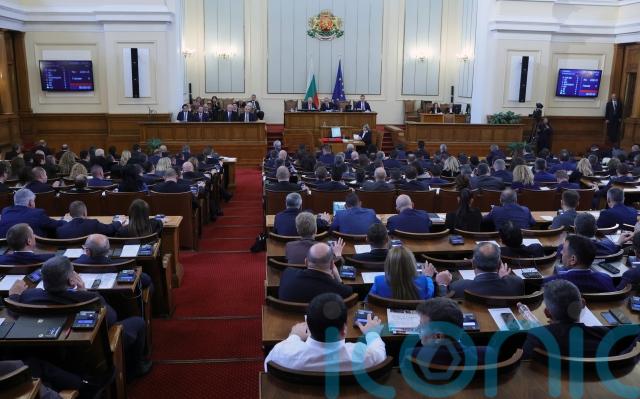
Bulgaria’s parliament failed on Wednesday to elect a government proposed by the centre-right GERB party to resolve a political impasse that has gripped the European Union’s poorest member country.
Prime Minister-designate Nikolay Gabrovski, 51, a renowned neurosurgeon who had proposed a technocratic Cabinet, failed to secure a majority in the 240-seat National Assembly, where only 113 legislators voted for his proposed government and 125 rejected it.
The GERB party won Bulgaria’s October election but has only 67 members in parliament. Party leader Boyko Borissov, who led three governments as prime minister between 2009 and early 2021, lost much of his public support because of allegations of corruption and links to oligarchs that sparked protests.
By the time of the last regularly scheduled election in April 2021, the polarisation between parties comfortable with the status quo and those favouring reforms made it almost impossible to form a government.

The president appointed several caretaker governments to serve in the meantime. A regular coalition finally emerged from snap elections and held office from December 2021 until June.
Analysts had said the only chance for Mr Borissov’s party to lead another government after the October election was naming a non-partisan candidate for prime minister to show its flexibility and readiness for dialogue. GERB’s lack of allies in parliament doomed the attempt to put Mr Gabrovski in office.
According to the Bulgarian Constitution, the country’s president must hand the mandate to the second-largest group in parliament, the We Continue the Change party led by former Prime Minister Kiril Petkov, and if it also fails, to a third party.
If all three mandates are returned unsuccessfully, the president would call another snap vote, which would be the fifth general election in two years.
Experts fear the enduring political stalemate could jeopardise the utilisation of EU funds under the country’s national recovery and resilience plan, as well as the Balkan country’s planned accession to the eurozone on January 1, 2024.
In 2020 massive street protests were staged across Bulgaria with thousands of people demanding an end to corruption, no political interference in the media, and an effective reform of the judiciary.
Government attempts to stop the protests with violence fuelled additional anger.
Experts fear that the enduring political stalemate could jeopardise the absorption of EU funds under the country’s national recovery and resilience plan, as well as the Balkan country’s planned accession to the eurozone on January 1, 2024.
The failure to set up a new government also threatens to delay the adoption of the state budget for next year and delay measures against the rising inflation.
Subscribe or register today to discover more from DonegalLive.ie
Buy the e-paper of the Donegal Democrat, Donegal People's Press, Donegal Post and Inish Times here for instant access to Donegal's premier news titles.
Keep up with the latest news from Donegal with our daily newsletter featuring the most important stories of the day delivered to your inbox every evening at 5pm.